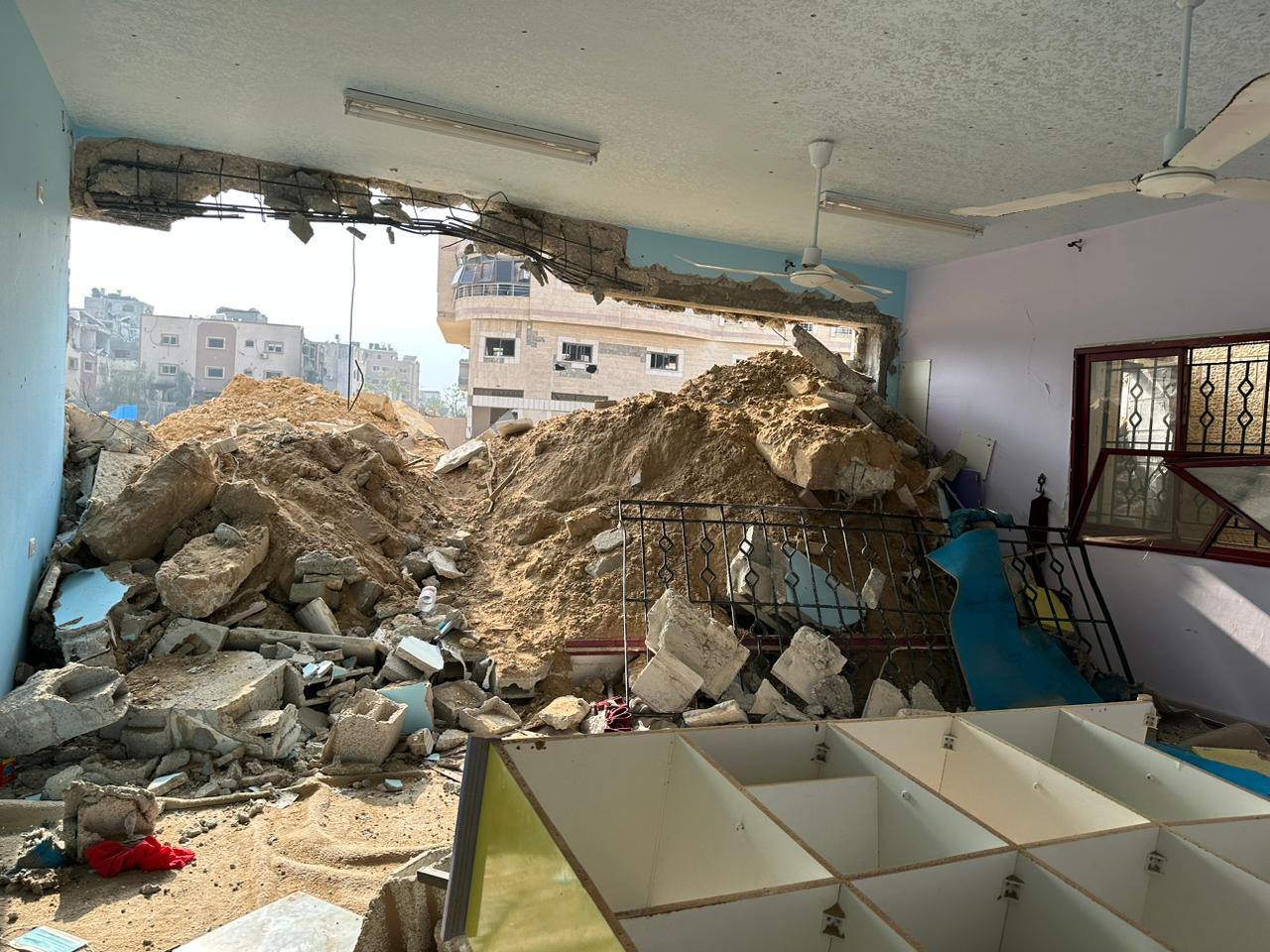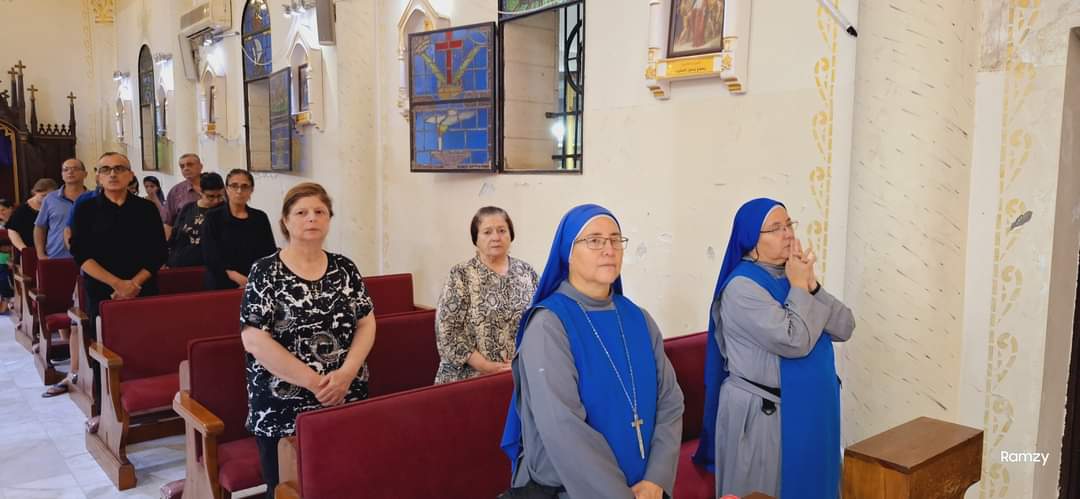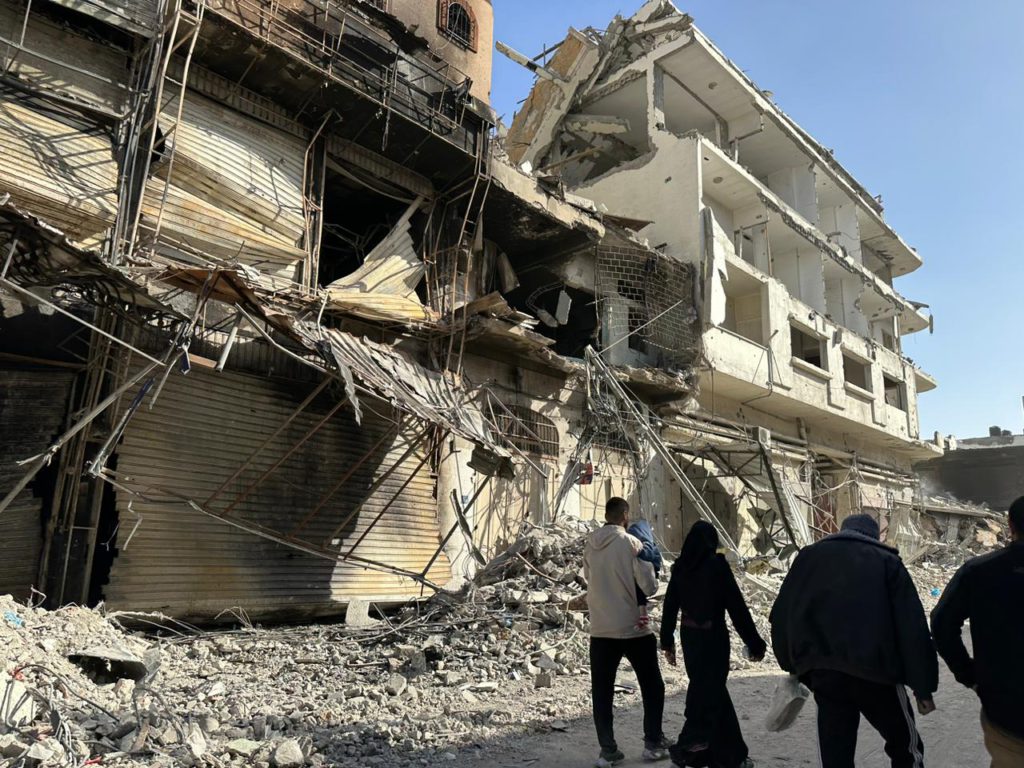According to sources contacted by Aid to the Church in Need (ACN), the humanitarian situation and living conditions for the small Christian community which remains in the Gaza Strip has deteriorated over the past months. In the four months since the beginning of the conflict, thirty Christians have died in Gaza.
The situation in Gaza is becoming increasingly desperate, with the region divided into two separate parts: north and south. Finding food and fuel continues to be very difficult in the north, where exorbitant prices make life even harder for residents. “For example, 20 liters of diesel cost €200, and only provide energy for the generators for two hours”, George Akroush, Director of the Project Development Office of the Latin Patriarchate of Jerusalem, told ACN.
Despite the difficulties, one priest and seven religious sisters from three different congregations continue to support the Christians who found refuge in the Catholic parish of the Holy Family. At one point, 700 people were gathered in this compound, which belongs to the Latin Patriarchate of Jerusalem, but that number has decreased in the past weeks due to migration and death. At the moment, there are 184 families – a total of 560 Christians – Catholic and Orthodox, including 140 children under the age of 18 (60 with disabilities) and 84 people over the age of 65 in the parish compound.

According to Akroush, a total of 30 Christians have died since the conflict began. These include the 17 victims of the strike on the Greek Orthodox parish compound in October 2023, as well as the two women killed by snipers in the Catholic parish of the Holy Family. Another 11 people have died from chronic illness that could not be adequately treated.
One of the most moving cases is that of Hani Abu Daud, a 48-year-old man who needed regular dialysis. Since the hospitals in the north had stopped functioning, he had to move south in search of treatment. Because of the increase in the number of attacks, the hospitals in that part of Gaza were also unable to continue to provide treatments, and Hanni died alone, far from his wife and children. He was not allowed to return to say goodbye to his family, and was buried in the south, where there is no clergy or even a Christian cemetery.
Lack of fuel and electricity means that pumps no longer work, so the residents have to extract water manually from the wells. “Hygiene has become a serious issue, especially for the children, who are falling ill because of lack of water and basic supplies, such as flour and diapers”, says ACN’s project partner. Medical care has also reached critical levels, and another ten people are at risk of dying due to lack of adequate treatment, says the same source, adding that communication is very difficult because it is hard to charge mobile phones. Nonetheless, Pope Francis continues to keep in almost daily contact with the priest and the religious sisters who are caring for the refugees.

Residents who happen to have a second nationality have opted to leave the Gaza Strip, seeking safety in countries like Egypt, Canada and Jordan. Whereas they at first resisted leaving, the situation over the past four months forced many to make that decision.
The situation in the north of the Gaza Strip is very tense since it has come under full control of the Israeli military. The displaced Christians can leave the compound but with caution as things might escalate at any minute, the situation there is very risky. “Any suspicious or dangerous movement will put your life at risk and might be your last. After four months under siege, they are tired, and many are sick”, Akroush explained.
With the help of organisations such as ACN, the Latin Patriarchate of Jerusalem has been able to provide medicine and food, as well as fund some medical procedures. The Patriarchate also continues to pay the salaries of schoolteachers and others who work for religious institutions, allowing them to continue to provide for their families.
For ACN’s project partner, the mass destruction of houses and infrastructure makes the future of the Christians in the region uncertain. “They say that 62% of the houses have been totally destroyed, and that reconstruction will last until 2093 according to some International and United Nations agencies active on the ground. With all of this, one has to ask what future is there for Christians in this country? What is going to happen? Nobody knows. Please, pray for us, do not forget the suffering of the Christians in this part of the world.”


